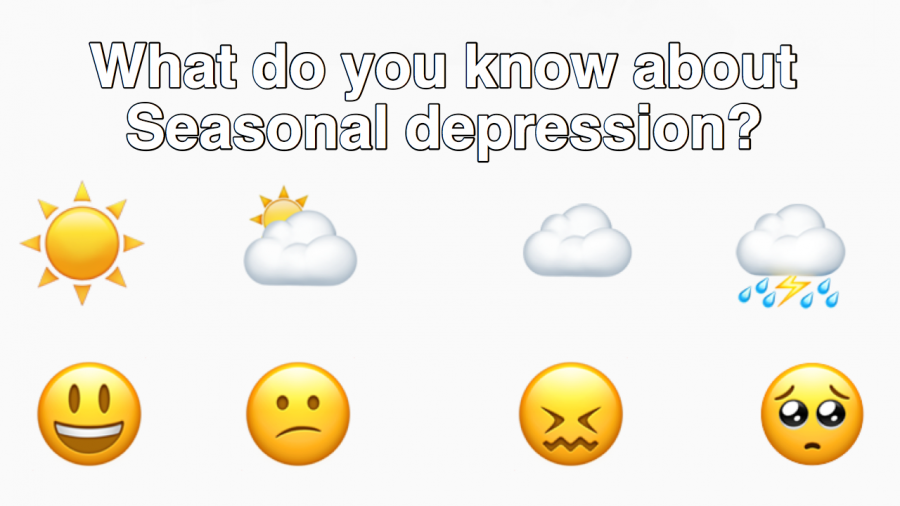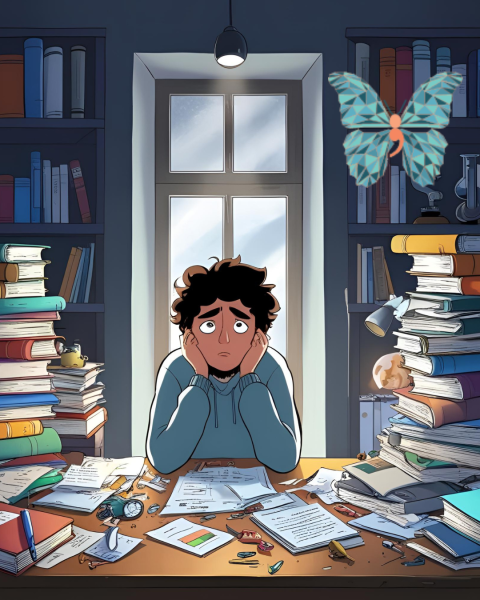Winter brings snow, seasonal depression
Some people suffer from seasonal affective disorder, often referred to as seasonal depression or winter depression.
Winter: the season of freezing weather, darker days, and holiday chaos. But for some people, winter doesn’t bring jolly feelings — instead, it brings a cloud of emotions.
Seasonal affective disorder (SAD), often referred to as winter depression, is defined by the Mayo Clinic as a type of depression due to or relating to the change of the seasons. People affected by SAD often feel moody and drained of energy starting during the shift to the winter months. Symptoms of SAD are similar to those of depression, including changes in sleep (too much or too little), low energy, being distant towards activities once enjoyed, feelings of worthlessness, and recurring thoughts of death or suicide.
“Find someone you can confide in and communicate with them,” Wellness Center administrator Segen Samson said.
While there are overall symptoms of depression, there are also symptoms specific to SAD. Those suffering from winter depression may have trouble with oversleeping, weight gain, a change in appetite (craving high-carb foods), and low energy.
“Seasonal depression can make you tired and lethargic but a circadian lamp or some kind of light therapy can increase your mood,” Wellness Center administrator Clarence McNeary said. He also suggests exercising to increase your endorphins and mood.
The risk factors for SAD are based mostly on family history and an individual’s mental illness history. Those with depression or bipolar disorder are at a greater risk for SAD, but there are treatment options like phototherapy or medication to provide relief throughout the winter season.
“If [students] come [to the Wellness Center], they can express themselves in different ways like journal entries or art,” Samson said. “We’re always a resource for everyone, but the best way [to increase your mood] is to find a hobby — something to keep you busy.”
So as you enjoy spending quality family time this holiday season, remember to look for the signs in your friends and family. If you notice a social withdrawal, substance abuse, suicidal thoughts or behaviors, or other mental disorders such as anxiety or eating disorders, reach out to your loved one.
It’s always better to ask questions and play it safe than to end up sorry. If symptoms are consistent or interfere with daily life, it’s recommended to see a doctor.
Your donation will support the student journalists of Watkins Mill High School. Your contribution will allow us to purchase equipment and cover our annual website hosting costs.

Jade is a senior at Watkins Mill High School and Editor-in-Chief for The Current. She is a four-time varsity girls volleyball player and involved many...










